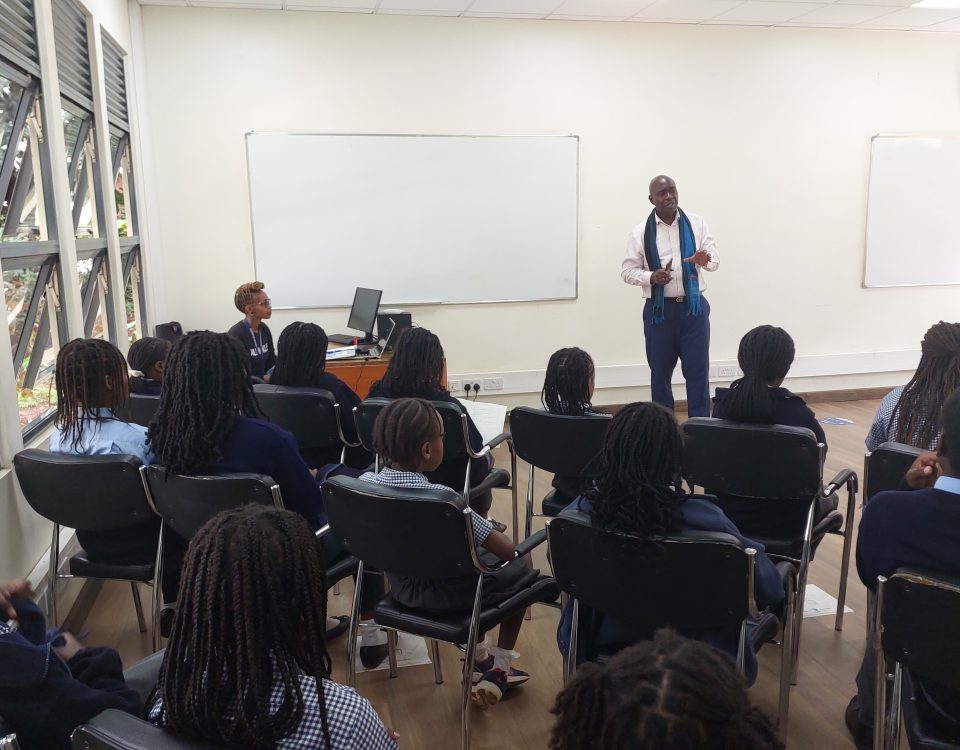Less Talk More Action

Restoring Africa’s Drylands
28th May 2021
Why Youth Should Take Lead in Climate Action
6th July 2021Ecosystem restoration! Our environment! Climate crisis! Ecological crisis!
So much is happening around us. An increased sense of virtual awareness but still not enough. Who is reaching out to communities and involving the youth? As the world still struggles with a global pandemic, sometimes deliberating about nature can seem toxic. But it should not stop us from talking about it. The conversation should actually increase. It’s not time to give up and stay silent. It’s the best time. Sharing a different perspective and highlighting how nature can be and is a healer are important.
But I digress!
Planet earth, our only home and the recent UN Decade on Ecosystem Restoration. What exactly is this? What are we restoring? Who are we restoring it for? How should we restore it? When can we begin to restore it? How will it be of benefit to us all? What do we all need to do collectively to achieve this?
“Change itself it’s something very scary, and that’s one of the things that hinders restoration more because it has to be a collective effort.”
– Hon. Adjany Costa, Current Advisor for Environmental Affairs to the President of the Republic of Angola
What we need to first understand is how the situation of our ecosystem was before and what we can do to fix it – if it was damaged, or maintain it, to prevent future damage. For example, we can’t restore what was a fully preserved and untouched forest. What we can do is protect it from deforestation or/and encroachment and grow and nurture the plants that call the forest home. Hence, we can restore a former forest even if it’s not how it was in the beginning, maybe better in some instances. For example, we can restore the Mau Forest, albeit this may seem impossible because of its current situation and political upheavals but incorporating agroforestry in an already human-inhabited forest can lead to its former state as a massive water tower for Kenya, hence restoration.
“One thing we all have to keep an eye on is, Restoration is a very powerful word. It implies what happens after some kind of disaster. So we have to ask ourselves, what are we restoring it from and what are we restoring it to?”
– Mordecai Ogada, carnivore ecologist and co-author of The Big Conservation Lie
Remember though, restoration is not entirely about planting trees. It includes other more crucial activities like taking action instead of more talk at conventions and conferences. Policies and plans can be drafted, signed and passed. However, if there is no on the ground action, it’s just a piece of paper to look at, mention at the next conference or convention and add it to the resources pile. It might not help anyone unless one is doing a study focused on that particular topic, although a personal achievement. Yet, we are at a breaking point where if we don’t do anything about the ecological crisis, the climate crisis, we will stand to lose as a species with the ability to reason and cause positive change.
Anyone interested in the future well-being of planet earth and its current and future inhabitant’s needs to be involved in any way to restore the ecosystem. There is also a need to understand why we all need to be concerned. Think about everything you are doing and how it is affecting you. Seamless example – how does it feel walking, working and living with a face mask? Exhausting, unending, problematic. Well, that’s how I feel most times, but I also feel safe. The chance to travel, see your parents or grandparents, friends, or even a random cheerful time outside where you can see facial expressions has been hindered for more than a year. A loss of human connection has changed the course of the human species going forward. Where we have realized the importance of our mental health and how nature plays a critical role in our physical, mental, psychological well-being.
“Everyone concerned, if you have an idea, think about it, consult about it, pray about it and then rise with an answer. Do it. If you wait for clear answers for everything, you’ll never get there.”
– Retired Bishop Dr. Simon E. Chiwanga, Founder and Chairman of LEAD Foundation
Now imagine a world where you must wear a facemask for most of your life, from birth until death all because the air around us is very much polluted or the pandemic has become a never-ending circus. Where you will need to buy oxygen to breathe. Where all the food you eat has microplastics. Where there is no access to clean drinking water for an entire human race including plants and other animals. Where lifestyle diseases are a norm and not an exemption.
Realizing that all these can easily be reversed if we seek to have a clean and healthy environment no matter who you are, where you are born and the economic status of the country you are in. Where there is no need to fight for resources since we can all have access to them equitably. This is a very utopic vision. Nevertheless, it is possible if we are serious enough to restore our ecosystems, both on land and life below water, considering all factors that come to play such as a world with zero hunger, no poverty, equality, good health and well-being, gender equality, quality education, reduced inequalities and responsible consumption and production. All these are plausible but require immediate action.
We cannot all be passionate about zero hunger or climate action. But, as long as you know what sets your soul on fire, even if it’s music, travel or medicine. I believe we can all play a part in shifting the course of mankind and our planet. Being kind to ourselves, each other and the planet is paramount.
Back to ecosystem restoration again!
What is it you do in your daily life that you think affects the planet? How many single-use plastic items have you used today? Where did you throw them when you were done? Where do you think they ended up? Most likely in a dumpsite or river or on its way to a developing country (speaking to Europe and the US). What can you do differently? Refuse single-use plastics. Practice the word no for single-use plastic straws. If you can, purchase reusable items.
What can you do about the laws we currently have that affect our planet? Read more about them. Understand them. Start online discussions. Start conversations with family and friends about them. Support people working towards making the legal systems work for both people and the planet. Read more again and share.
“It is only by working together that we get stronger and that we can fund and implement ecosystem restoration.”
– Inger Anderson, Executive Director of the United Nations Environment Programme (UNEP)
What can we do about communities and vulnerable people, including people living in developing countries who will be greatly impacted by climate change? Involve them in decision making. Listen and take action. Encourage participation. Foster a good relationship. Learn about their ways and means. Indigenous communities hold the key to the secrets of our planet. They know more about nature, our planet. They can read stars, the sea, and forests and know what is going to happen next. Some events are never a surprise since they saw it coming.
Lastly, the one people who should be heavily involved are the youth. With the amount of energy, willingness to help and a desire to see things work for the better, the youth have the power to foster action relentlessly leaving no stone unturned. Opportunities and mentorship are crucial for the youth. Providing this will see more action take place and a chance to make a difference emerge. It’s all in how the youth are engaged and involved. It’s really in the simple and complicated things. As long as they are not used to grow campaigns and initiatives for personal gain without recognition, they can do more to share their robust energy to change the world.
“The role that young people play is pretty much the biggest comparative advantage that Africa has. How do we interest them, activate them and invest in their ideas? The Sahel is the youngest part of the world’s youngest continent. That ought to be a source of great strength and inspiration.”
– Wanjira Maathai, Vice President and Regional Director for Africa, WRI
The term ecosystem restoration may be hard to grasp but it is up to those who understand it to simplify it for everyone. Every year we have global environmental days, yet every single time we repeat the same statements. It’s about time these days were seen as a bigger thing. Not just newsworthy content or government and NGOs day of showing the world they have not been left behind and what they are doing.
If every year we spoke more about the actions being taken collectively, will we see a difference?
Thoughts inspired by the Global Landscapes Forum: Africa Digital Conference.
Cover image courtesy of Tony Wild.




